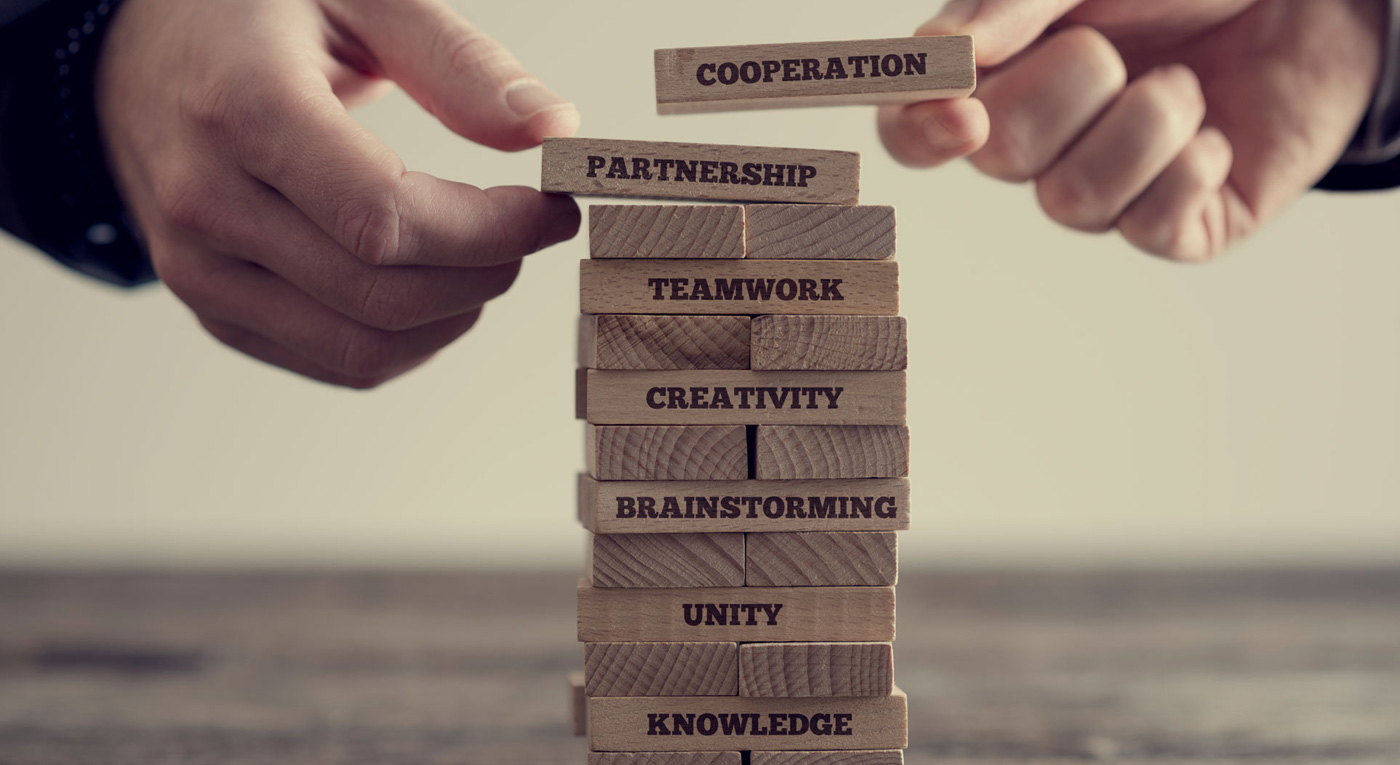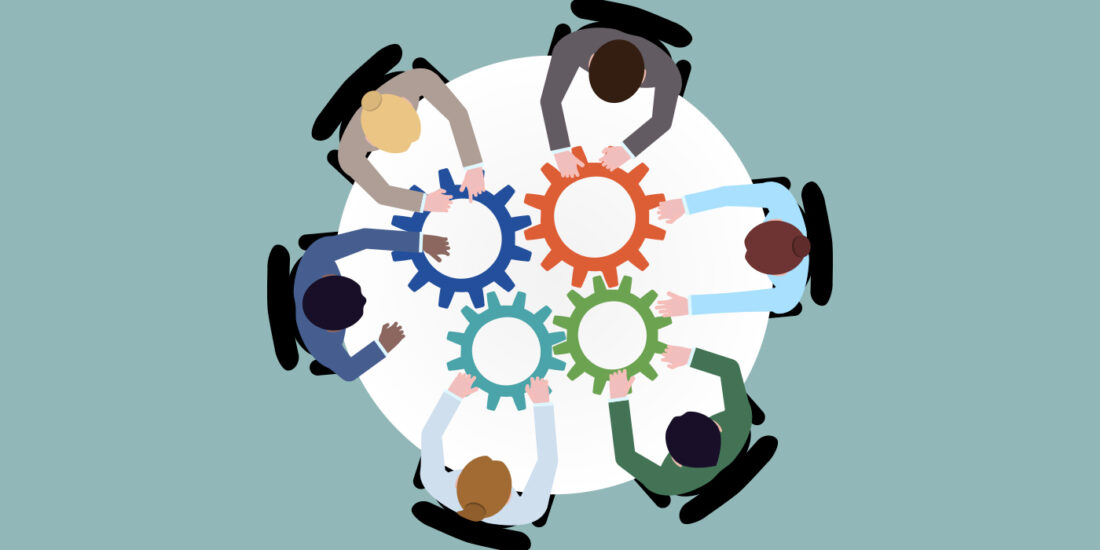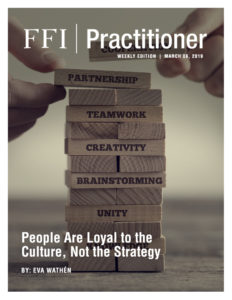
View this edition in our enhanced digital edition format with supporting visual insight and information.
In this week’s FFI Practitioner, Eva Wathén examines the importance of culture within family enterprises and explores some of the differences between the cultures of family-owned and nonfamily-owned enterprises.
“It is just the way we do things round here…My father would not have allowed a change like that…Mother did not have an official role but without her we would not be where we are today. I wanted to change the way we structure and lead our business but experienced a power battle from previous generations. The resistance among some of the long-time key executives was just tremendous.”
These and similar statements often occur in informal discussions with family business owners, regardless of the generation they represent. Implicitly the statements illustrate different cultures prevailing in family businesses.
Culture reflects the way things are done in organizations — even when we think nobody has an eye on us. Culture reflects the habits, beliefs, routines, traditions, and unwritten rules posted on the walls and rooted in the minds of the people working together. It is the air the organization breathes. Therefore, people are primarily loyal to the culture, not to the strategy, and a successful change in any organization requires close attention to the organizational culture. The culture can provide oxygen or suffocate the change process, and that is why the culture should be addressed systematically and continuously.
In an article by Dan Denison and John Ward in Culture in Family-Owned Enterprises; Recognizing and Leveraging Unique Strengths1, the results of a study that included 20 family businesses and 389 non-family businesses were discussed. This study surveyed and compared the companies, using The Denison Organizational Culture Survey as the assessment tool. In my company (Bravemotion), we use the same tool in our talks with customers– be they family businesses or not — and we have recognized that the outline the tool provides gives great depth and understanding of the current situation and the possible challenges ahead. According to Denison, beliefs and assumptions lie at the very core of corporate cultures, but they are expressed via four cultural traits: adaptability, mission, consistency, and involvement. Further, each trait has three sub-components explaining the trait in more detail.
Modified from Denison Organizational Culture Model2
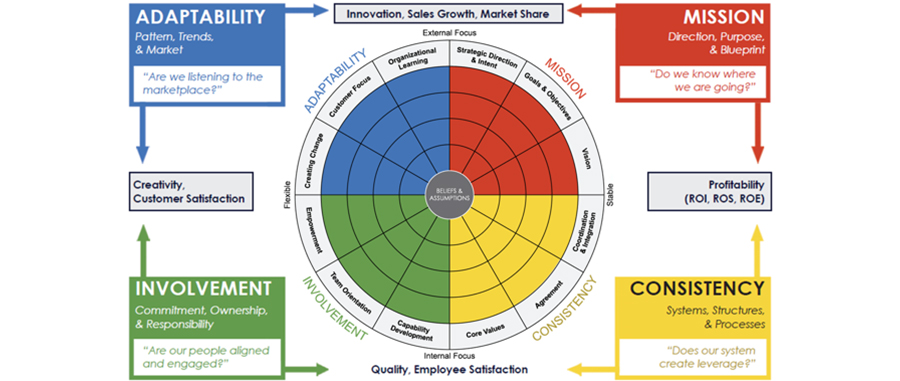
It is interesting to look at the dimensions of the model and important to be aware of what is happening in the market place –the prevailing trends, business possibilities and threats — and to make sure there is proper alignment. This is the external dimension.
On the other hand, people—and more specifically their commitment, underlying values, processes, and structures—are required to support the outlined mission and purpose.
The horizontal axis in this diagram describes the balance between the flexibility and the stability of the culture. Another way to describe this axis would be using the continuum Entrepreneurial Exploration -Entrepreneurial Exploitation3, where one extreme of the spectrum explores how to reorient strategies within an organization and place new focus on opportunities — and the other extreme focuses on delivering the expected outcomes with the present core capabilities, through strengthening their leverage.
In the results of the Denison & Ward 2004 study, family businesses had higher mean ratings on all 12 indexes and thus all four traits. The most significant differences favoring family business cultures appeared in the traits of adaptability and consistency. Organizational learning, including the ability to create change, identify core values, and reach agreement, was especially seen as an advantage.
Typically, values in family companies are deeply rooted to the traditions and stories accumulated across generations, so in that sense the survey results were quite self-explanatory. The ability to create change can also reflect the ability for swift and non-hierarchal decision-making in family businesses, as opposed to corporations with multiple organizational layers. Last but not least, the inclination to find consensus in family-type settings can influence the higher scores of family companies as opposed to non-family companies.
However, the 2009 financial crisis and the years that followed dramatically changed the arena for many family businesses. One family business owner and manager in a 4th generation family business recently underlined our practical findings, having been able to transform her family’s business using all four traits together. In her interview, it became clear that the focus of her business transformation was on external issues. The internal shift then followed.
Together we identified the following changes imposed on businesses since the 2009 crisis:
- Changes in supply chain management: wholesalers and intermediaries are bypassed in the search for cost cuts.
- Squeezed inventories, resulting in the need for speedier short-notice deliveries.
- Differing methods and requirements in financing.
- Changing modes of work: competencies and capabilities need to be updated swiftly for current needs.
- Global business and more diverse teams.
- Accelerated speed of digitalization and robotization.
- Agile leadership with great communication skills and emotional intelligence seen as top traits.
Resilient, surviving, and thriving cultures need to respond to the changes in the external market and align internal resources accordingly. Finding the optimum balance between the exploration of the new and the leveraging of the present will be key to success in family businesses and their cultures. Tacit knowledge from the previous generations needs to be acknowledge and applied to current settings. At the same time, the capabilities of next generation leaders need to be appreciated.
The founders of family businesses are typically risk-taking entrepreneurs who aim at growing the business rapidly with great personal involvement. As generations pass, more structures and rules need to be put in place and more emphasis placed on the continuity of the business. The number of people in the ownership position increases, and so does the complexity of the issues.
It is fifteen years since Denison & Ward completed their survey comparing family businesses to non-family businesses. It would be interesting to repeat the survey today. Would family businesses still be able to surpass non-family counterparts in all 12 traits? Leadership and strategies needed today have experienced quite a climate change compared to the situation fifteen years ago. The winners are the ones who can swing in an optimal way between exploitation and exploration.
Cultures are powerful, almost like perpetual motion machines. People follow them and carry them forward with loyalty and integrity. A good understanding of how your client’s cultural machines work and how they could work is essential.
References
1 Denison, D., Lief, C., & Ward, J. L. (2004). Culture in Family-Owned Enterprises: Recognizing and Leveraging Unique Strengths. Family Business Review, 17(1), 61–70. https://doi.org/10.1111/j.1741-6248.2004.00004.x
2 Modified from Denison Organizational Culture Model; Denison, Lief, & Ward, 2004, p. 66.
3 Goel, S., & Jones, R. J. (2016). Entrepreneurial Exploration and Exploitation in Family Business: A Systematic Review and Future Directions. Family Business Review, 29(1), 94–120. https://doi.org/10.1177/0894486515625541
About the Contributor
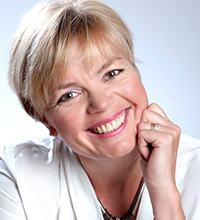 Eva Wathén holds an FFI Certificate in Family Business Advising and is currently working towards an Advanced Certificate. She has worked in a variety of roles in family business settings, is an entrepreneur, and a certified coach. She has her master’s degree from the University of Surrey, holds an eMBA, and is about to pursue MSc studies in the field of Applied Psychology.
Eva Wathén holds an FFI Certificate in Family Business Advising and is currently working towards an Advanced Certificate. She has worked in a variety of roles in family business settings, is an entrepreneur, and a certified coach. She has her master’s degree from the University of Surrey, holds an eMBA, and is about to pursue MSc studies in the field of Applied Psychology.
About Bravemotion Oy
Bravemotion Oy is a Finnish company working in the field of leadership development to pave the way for a high-performance culture and the individual growth of leaders. Bravemotion works in multidisciplinary teams and has a wide network of experts and specialists for the benefit of the customer.

View this edition in our enhanced digital edition format with supporting visual insight and information.


